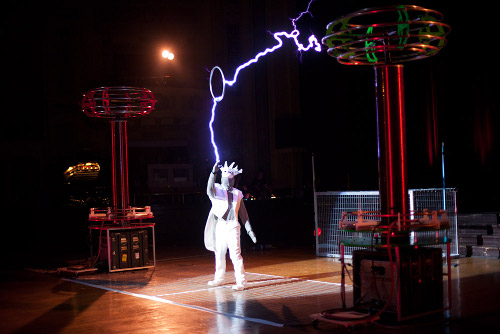Links for 2011-08-30
# Validate your data backup plan
# Consider employees and the personal impact of a disaster
# Develop various ways to communicate with employees, partners
# Think about the „domino effect” when considering business risk
# Plan for catastrophic events that could last a while
# Think broadly
For one thing, people are buying more and more books in Amazonia, and more and more of them are on Amazon’s ebook platform the Kindle. In May this year, Amazon announced that, for the first time, it was selling more Kindle versions of books than paperback and hardbacks combined, and (here’s the thing that doesn’t get quoted so often) sales of print books were still increasing.
Amazon also announced that, in the year to May 2011, it had seen the fastest year-on-year growth rate for its US books business, when expressed in volume and in dollars. This included books in all formats, print and digital. In the UK, less than one year after opening its UK Kindle store, Amazon.co.uk is selling more Kindle books than hardcover books. And again, this is while hardcover sales continue to grow.
Bad-boy Pentagon boffinry bureau DARPA has now released the official solicitation for its „100 Year Starship” project, intended to get human beings making interstellar voyages within a century.
We’ve covered the 100 Year Starship push on these pages before, and the outline idea remains the same. A very small amount of US government seed money (to be specific, $500,000) will be provided by DARPA and handed out by NASA’s Ames campus in Silicon Valley. This tiny financial seed is intended to sprout and grow into a stupendous organisation able to harness and deploy the titanic resources necessary to deliver working interstellar transport.
Dubbed „The Great Internet Speedup,” this cooperative effort involves deploying an extension to the Domain Name System, which is the underlying protocol that matches Internet domain names with corresponding IP addresses.
Proponents of the DNS tweak say it will decrease the latency end users experience when accessing videos and other large files, and that it offers CDNs a better ways to scale up their networks.
But others say the DNS protocol tweak creates architectural issues and privacy concerns, the latter stemming from the passing of parts of IP addresses in a DNS query. This change to the DNS protocol has been proposed as an experimental document to the Internet Engineering Task Force, but it hasn’t been adopted yet by the standards-setting body.
Mit einer kurzen Meldung hat Oracle die 2006 von Sun ins Leben gerufene „Operating System Distributor License for Java” (DLJ) in Rente geschickt. Unter dieser – nicht freien – Lizenz durften Linux-Distributoren bislang die Java-Versionen von Sun und später Oracle paketieren und verteilen.
Polen erwägt derzeit die Einführung eines Gesetzes, das es der Regierung ermöglichen wurde, im Falle eines Cyber-Angriffs das Kriegsrecht auszurufen. Ähnliche Gesetzgebung existiert bereits in den Vereinigten Staaten. Unter IT-Sicherheitsexperten sind derartige Konzepte extrem umstritten.
Switzerland could become the first country to outlaw PowerPoint presentations if a new party runs in the October parliamentary elections. Matthias Poehm, founder of the Anti-PowerPoint Party, claims that €350bn could be saved globally each year by ditching the scourge of public speaking. Poehm believes that the software takes people away from their work and teaches them little. „There is a solution,” he says. „A flipchart.”
Was tut man als holländische CA, nachdem man erwischt wurde, wie man dem Iran Zertifikate für Google Mail ausgestellt hat? Das ist PR-technisch keine ganz einfache Situation. Man könnte sagen, naja, das ist der Iran, die hätten die halt sonst woanders gekauft. Und so haben wir ihnen Geld abgenommen, mit dem sie jetzt keine Raketen bauen können!1!!
DigiNotar geht einen anderen Weg. Hier ist ihre Presseerklärung. Und das ist Comedy Gold, sage ich euch! Nicht nur behaupten sie, die Zertifikate gar nicht ausgestellt zu haben, nein, sie pullen die „wir wurden gehackt!1!!”-Karte. Nun ist die Ansage, als CA, dass man gehackt werden kann, natürlich der ultimative Totalschaden.
All aboard for London’s transport design icons. From railway signs to tube seats, the next stop could be your house
When members appear in public to protest censorship and what they view as corruption, they don a plastic mask of Guy Fawkes, the 17th-century Englishman who tried to blow up the Houses of Parliament.
What few people seem to know, though, is that Time Warner, one of the largest media companies in the world and parent of Warner Brothers, owns the rights to the image and is paid a licensing fee with the sale of each mask.
A chatbot is a computer program that’s intended to fool us into thinking that it’s human. Historically, this has been a tricky thing to do, and for the last 20 years there’s been a $100,000 prize and gold medal waiting for the first computer program that can carry on a conversation indistinguishably from a human. Arguably (very arguably), this could also be the first computer program to demonstrate an artificial intelligence.
Cornell’s Creative Machines Lab decided to see what would happen if they put two chatbots face to virtual face and got them started talking to one another. Things didn’t go quite as crazy as might have been expected, but a fair amount of pointless argument, passive aggression, and random hilarity did ensue:
Security researchers have discovered a counterfeit web certificate for Google.com circulating on the internet that gives attackers the encryption keys needed to impersonate Gmail and virtually every other digitally signed Google property.
Tagged as: delicious, links | Author: Martin Leyrer
[Dienstag, 20110830, 04:05 | permanent link | 0 Kommentar(e)
 This content includes
This content includes 

